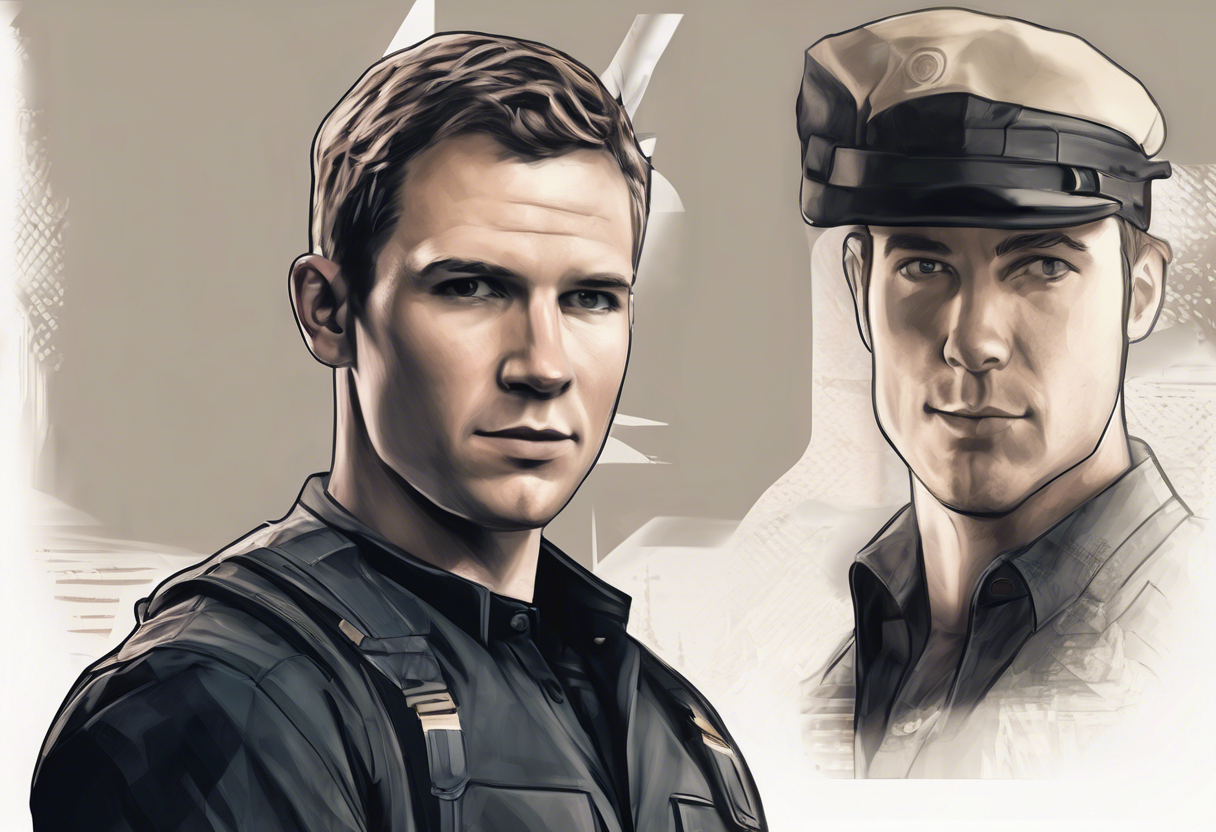Contents
Bureau Agent David: The Complex Antagonist of the Divergent Trilogy
Introduction
Bureau Agent David is a pivotal and complex character in the Divergent trilogy by Veronica Roth. He serves as the leader of the Bureau of Genetic Welfare, an organization that plays a crucial role in the narrative of the final book, Allegiant. David’s character is multifaceted, with a rich backstory, defining traits, and significant contributions to the plot. This article will delve into his origins, role in the story, character analysis, thematic significance, cultural impact, critical reception, and lasting legacy.
David is introduced as an older man with a commanding presence, often seen in a dark blue uniform, symbolizing his affiliation with the Bureau of Genetic Welfare [1][2]. His character is deeply intertwined with the broader themes of genetic experimentation, societal control, and the ethics of scientific advancement.
Role in the Story
David’s storyline is central to Allegiant, where he is portrayed as the main antagonist. He is responsible for overseeing the experiments conducted by the Bureau, which aim to restore genetic purity to society. When things go awry with these experiments, David’s solution is to reset the population using a memory serum, effectively erasing the memories of thousands of people to start anew [5].
David’s journey involves his interactions with the main characters, particularly Tris and Tobias. He has a personal connection to Tris’s mother, Natalie, whom he loved and who volunteered for one of his experiments. This connection adds a layer of complexity to his character, as he is forced to confront the consequences of his actions when Tris discovers the truth about her mother’s death [5].
Throughout the book, David’s decisions are driven by his belief in the necessity of genetic purity and his willingness to go to extreme lengths to achieve it. He faces significant conflicts, including a gunfight with Nita and Tris, which leaves him in a wheelchair. Despite this, he continues to attempt to lead the Bureau and enforce his vision through any means necessary [5].
Character Analysis
David’s personality is marked by a rigid adherence to his ideology and a lack of empathy for those who do not fit into his vision of a genetically pure society. He is calculating and willing to make tough decisions, even if it means erasing the identities of entire communities. This cold demeanor makes him a compelling antagonist, as his actions are both terrifying and thought-provoking.
Despite his flaws, David has a certain charm and charisma that allows him to maintain control over the Bureau. His motivations are rooted in a twisted sense of altruism; he believes that his methods are necessary to create a better world. However, this altruism is deeply flawed, as it disregards individual freedom and human dignity.
David’s character also highlights the dangers of unchecked scientific progress and the ethical dilemmas that come with advanced technology. His willingness to use memory serum to control people raises questions about the limits of scientific intervention in human lives.
Themes and Symbolism
David embodies several key themes in the Divergent trilogy. He represents the dangers of totalitarian control and the erosion of individual freedom. His use of memory serum symbolizes the ultimate form of control, where individuals are stripped of their memories and identities, reducing them to mere puppets of the state.
The character of David also delves into the theme of genetic determinism versus free will. His belief in genetic purity and the need to correct genetic defects raises questions about the nature of humanity and whether people can be improved through scientific intervention.
Furthermore, David’s relationship with Tris’s mother and his subsequent actions serve as a commentary on the personal costs of scientific ambition. His character underscores the importance of empathy and the need for scientists and leaders to consider the human impact of their decisions.
Cultural Impact
Bureau Agent David has had a significant cultural impact, particularly among fans of the Divergent series. His portrayal in the film adaptation of Allegiant further solidified his place in popular culture. The character’s complexity and the moral ambiguity of his actions have sparked numerous discussions and debates among readers and viewers.
David’s influence can also be seen in other works of dystopian fiction, where characters with similar motivations and conflicts have been explored. His character archetype—the charismatic yet ruthless leader—has been a staple in many sci-fi and dystopian narratives.
Critical Reception
Critics and audiences have had mixed reactions to David’s character. Some have praised his complexity and the depth he adds to the narrative, while others have criticized his lack of empathy and the extreme measures he takes.
The controversy surrounding David’s character stems from his willingness to erase memories and his disregard for human life. However, this controversy also highlights the effectiveness of his character in sparking important discussions about ethics, control, and the human condition.
Legacy
Bureau Agent David’s legacy in the Divergent trilogy is that of a compelling and thought-provoking antagonist. His character has inspired other works in the dystopian genre and continues to be a subject of analysis in literary and cultural studies.
David’s enduring appeal lies in his ability to challenge readers’ perspectives on complex issues such as genetic engineering, societal control, and the ethics of scientific advancement. His character serves as a reminder of the dangers of unchecked power and the importance of empathy and individual freedom.







